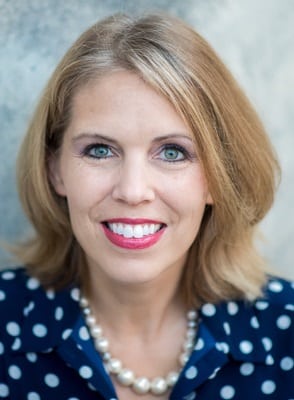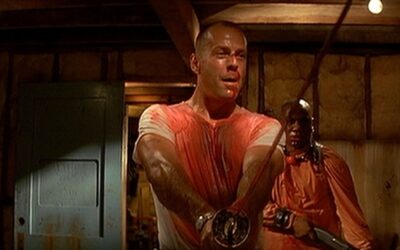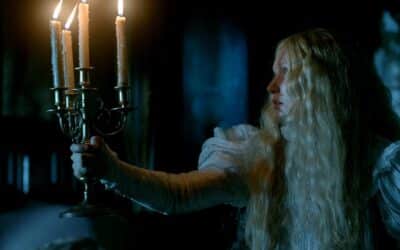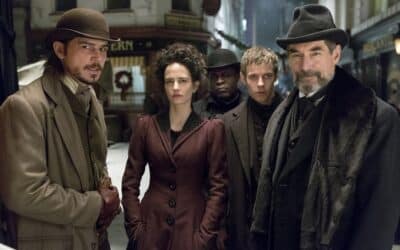
Feature
Suspense Roundtable
by Cara Putman
Suspense in all its forms remains a popular genre with readers everywhere. A quick search shows that there isn’t a clear-cut definition of what constitutes suspense. There should be tension on the page, but it could have a Gothic feel or be balance with romance. There could be a ticking time bomb that impacts a city, country, or the globe. Others will focus on psychological elements to layer in the moments that keep the pages flying. In this roundtable, best-selling, award-winning authors share some of their secrets.
Q. It’s challenging to find that hook that can propel action through 300 pages. How did you come up with your latest what if?
Cara Putman: My latest what-if for Lethal Intent grew out of watching a medical life or death struggle a friend’s teenage son lived through. He was part of two CAR T-cell trials, and that became the medical/suspense thread. My friend arranged for me to have coffee with the doctor who oversaw her son’s case, and that’s the only way I got any of the details right. Well, that and a lot of on-going research.
Kelly Irvin: With Her Every Move I started with my character, a librarian at my adopted hometown’s Central Library. I love this gorgeous library and thought it would make a great setting for a romantic suspense novel. I wanted to blow away any remaining stereotypes for libraries and librarians. Then I wanted a big crime, one that would shake the whole town, not just her world. I was looking for something that would involve the politicians, the media, and affect San Antonio’s tourism-based economy.
Natalie Walters: As a military wife, I have the privilege of meeting military members who serve in different capacities. Many of them know I’m a writer and understand that I’m always listening for a good story so when they began discussing a terror plot to blind the U.S., I was all over it.
Jaime Jo Wright: I grew up in the hometown of the Ringling Bros. Circus, so a circus was an inevitable catapult for a creepy mystery. Every nook and cranny of this town is filled with abandoned circus buildings, elephant ghosts, and the lingering sound of haunting calliopes. I’ve been fascinated by all things circus, so I thrived in this story environment.
Colleen Coble: Three Missing Days actually came from the title, if you can believe it. It’s the 3rd in my Pelican Harbor series, and my publishing house helped title all three books. One Little Lie, Two Reasons to Run, and Three Missing Days. As the team tossed out title ideas, I gasped when I saw Three Missing Days, and the entire plot around Jane’s conflict with her mother unfurled in my mind. Hooks come from everywhere for me.
Lynn H. Blackburn: The first scene in Unknown Threat has been in my head for some time. I could visualize the men climbing from their cars, going for an early morning run, and, well . . . everything that happens after that! (No spoilers!) But I didn’t know how it would fit into a book or what would happen next. While my new series focuses on Secret Service agents, I knew I didn’t want all three books to revolve around presidential security, and I didn’t want all the love interests to work in the same office. Then I learned that the FBI has authority to investigate attacks on the U.S. Secret Service, and the big pieces clicked into place.
Siri Mitchell: I was listening to NPR five or six years ago and heard an interview of a couple; he had face blindness, she did not. As I listened, I became fascinated with how having face blindness impacted his interaction not only with the world in general, but also with his girlfriend. The thought that he couldn’t recognize the person who meant the most to him was tragic. As that interview sunk into my subconscious and my imagination did its work, the thought came to me that it could also be dangerous. What if…a person who had face blindness witnessed a murder?! That’s how Everywhere to Hide came to be born.
Q. I have to tell you, I’ve read each of these books and they are all wonderful. One of the things I love about them though is how unique and different they are. You have a gothic story set at the Circus in The Haunting at Bonaventure Circus to all sorts of intense action with the Secret Service and other branches of law enforcement. I so enjoy picking up a book and knowing that I can count on a twisty what if combined with great characters. When you think about great stories, what pulls you in and won’t let go?
Kelly Irvin: It’s a combination of character development, strong writing, and pacing. I love it when I start reading and instantly I’m drawn to the character and his/her life. I care about the plot/conflict because I care about him or her. Last summer I read all of Michael Connelly’s Harry Bosch mysteries and all of J A Jance’s J.P. Beaumont mysteries. These are two terrific characters beautifully drawn with flaws and deep tendencies toward heroism. Plus as a writer I can study how the authors aged and grew their character.
Natalie Walters: For me, I love a strong plot that keeps me guessing but it’s usually the characters. If I’m emotionally invested in their personal story unfolding with the plot—I’m hooked!
Jaime Jo Wright: Cliffhangers and characters! I need to be invested in caring about the characters, but it’s the cliffhangers that keep me intrigued, and reading, and devouring the story.
Colleen Coble: For me, it’s mood. There needs to be some intriguing events happening and immediate problems for the characters.
Lynn H. Blackburn: Characters! I will forgive a lot of weaknesses in a story if I love the characters. If I don’t care about the characters, even an intriguing plot won’t keep me turning the pages.
Siri Mitchell: Character. A hook is only a hook. It might get me to pick up a story, but fully developed, dimensional characters are what keep me reading.
Q. It’s fun to see that as readers we’re unanimous that characters matter. I’ve been known to binge series, but it’s usually because I become intrigued by the characters and want to see what happens next. As a writer, though, what’s more important: the what-if, characters, or setting?
Carrie Stuart Parks: The two seem to go together. I need the right character for that setting.
Kelly Irvin: I always start with the character. Even my romantic suspense novels are character driven. Who they are informs how they will act when facing the what-if.
Natalie Walters: I love strong character connections. That’s usually what’ll have me remembering the story long after the last page. They end up becoming friends and I’m always left wanting more.
Colleen Coble: I’m a weirdo. I first start noodling after deciding on the setting. The things that are normal in that setting help play into the plot and the characters. I find it impossible to craft a story without strong input from setting.
Lynn H. Blackburn: My characters are the most important. But regardless of the specific town or state I’ve put the characters in, my novels always take place in the south, and that underlying setting informs all aspects of the story.
Siri Mitchell: Can I go with two of three? Giving well-developed characters compelling what-if is the secret to a great story. And honestly, a great story can be told in the middle of the biggest metropolis in the world or in the middle of a wilderness. I don’t think that I’ve ever put setting first in my writing. That’s not to say, however, that it’s not important. A well-developed setting adds an extra layer to a story. And putting in the extra effort to develop a setting always improves a story.
Q. For me it very much depends on the book. Some of my books come from a clear hook. There’s a what-if that jumps out at me and I have to find the characters who will tell it. With my legal thrillers (the Hidden Justice series + stand alones) it really started with the characters. I knew the heroines went to law school together and were now practicing law in different ways in the DC area. The trick became giving them unique crises so the stories felt fresh each time. One thing I’ve learned with suspense is the importance of getting the research details correct. How do you ensure your books are accurate?
Carrie Stuart Parks: I buy and read a LOT of books on the area as well as call up and interview experts.
Kelly Irvin: For Closer Than She Knows, I interviewed a court reporter and a homicide detective, and read at least half a dozen books on serial killers. For Her Every Move, I interviewed two librarians and read tons of articles about Día de los Muertos. Then there are books on poisons, guns, and writing fight scenes.. I also attend on-line conference workshops on crime scene forensics, how autopsies are conducted, and the latest technology for tracking down criminals. I have watched YouTube videos on topics such as how to get out of handcuffs and how tasers work. Research is half the fun!
Natalie Walters: I research a lot online, read books about the subject, and if possible, talk with people who have experience in the subject.
Jaime Jo Wright: Lots of double checking and scouring old sources. Especially in the historical timeline of my novels, I seek out old documents, ancestral resources, historical fact sites, museums, and basically, I time travel back in time to make sure it’s as accurate as possible.
Colleen Coble: Lots and lots of reading. I always visit the setting too, and I hang out in coffee shops where locals congregate.
Lynn H. Blackburn: Reading. Visiting locations when possible. Asking locals about terminology and specifics when I can’t see it for myself. Interviewing professionals who work in the fields I’m writing about.
Siri Mitchell: A lot of research! If I have a choice, I prefer finding books and articles, maps and other materials. Because I’m a shy person and hate to think that my questions might annoy someone, I will usually save contact with an actual person as a last resort.
Q. It’s this commitment to getting the details right that makes your books my go-tos in this genre. I know as a reader an inaccurate detail pulls me right out of the story. As a writer, the last thing I want to hear is that I got something wrong. It happens, but I don’t want it to be because I didn’t do my work to nail the details. One of the other elements I love is that each of your books is firmly planted in location. Setting may not be a primary concern for you, but once you decide on the where it practically becomes a character. How do you pick the location/setting of your romantic suspense novels?
Carrie Stuart Parks: My husband often suggests a location where he wants to visit. He’s devastated that the book I’m working on now is in Eastern Washington. He wants to go on a river cruise…
Kelly Irvin: All my romantic suspense novels are set in San Antonio, my adopted hometown. It’s the perfect setting because of its rich multicultural history. San Antonio is diverse, historic, and beautiful. Yet it has the typical big city underbelly of drugs, gangs, and crime.
Natalie Walters: I usually pick places where I live or have lived. Being a military wife, we’ve traveled and lived in a lot of locations, and I like adding a few personal details to the setting to give it that extra authenticity.
Jaime Jo Wright: I have a thing for my home state of Wisconsin and my childhood stomping grounds in the Upper Peninsula of Michigan. I also love small towns and all the secrets they hold. So I tend to gravitate to that as the general foundation, and from there, any creepy place is a potential setting!
Colleen Coble: I love water settings. There’s something about the evocative mood I get from being around the water. And since I write suspense, the water settings can add an element of danger.
Lynn H. Blackburn: I’m a Carolina girl. I was born in the mountains of North Carolina, and now live in the Upstate of South Carolina. I love the variety and beauty of the Carolinas and haven’t needed to venture away from them yet. If the story calls for mountains? Check! Beaches? Check! Small town? Yes! Cities? Yes!
Siri Mitchell: Generally, the location picks me. And it’s usually plot-specific. I’ve been writing political thrillers, so the obvious choice for those has been the DC-metro area where I live. My contemporary fiction has always been set in places where I’ve lived.
Advertisement
Q. Tell us about your latest book in a sentence or two.
Kelly Irvin: Her Every Move: In a breathless race against the clock, a librarian teams up with a local homicide detective to hunt down a serial bomber.
Natalie Walters: When an Egyptian spy goes missing in Washington D.C., CIA officer Brynn Taylor is forced to work with Jack Hudson, the man she betrayed almost a decade earlier to find the terrorist threatening a digital blackout that will throw the world into chaos. (Lights Out-releasing November 2, 2021)
Jaime Jo Wright: A circus is the place where misfits go to hide–especially when The Watchman haunts you from the shadows. Years later, the secrets of the circus killer will be exposed. (The Haunting at Bonaventure Circus)
Colleen Coble: Chief of Police Jane Hardy plunges into the investigation of a house fire that claimed the life of a local woman as well as one of the firefighters. It’s clear the woman was murdered. But why? The unraveling of Jane’s personal life only makes the answers in the case more difficult to find.(Three Missing Days – releasing April 6, 2021)
Lynn H. Blackburn: US Secret Service Special Agent Luke Powell has been assigned to the Raleigh office for several years, and he knows it’s not a coincidence when three friends and fellow agents die in unusual circumstances within weeks of each other. As more agents are targeted, the stakes become higher than ever. FBI Special Agent Faith Malone is placed in charge of the investigation and must work with Luke to bring the killer to justice before any more names are added to the Secret Service Wall of Honor. (Unknown Threat, March 2021)
Siri Mitchell: When Whitney Garrison, who suffers from face blindness, becomes the sole witness to a murder, she tries to convince herself that it was just a crime of opportunity. But when it becomes apparent that the victim was involved in espionage and that the killer has a way of anticipating her every move, she decides her life is in danger. And that the killer might be closer than she thinks. (Everywhere to Hide, October 2020)
Q. Where can readers find you online?
Cara Putman: Be sure to pop by my website and join my newsletter. You’ll receive the prequel novella to the Hidden Justice series as my gift to you (Http://caraputman.com/contact. I’m also on Facebook, Twitter, and Instagram. I love connecting with my readers!
Carrie Stuart Parks: The best place to stay in touch is to drop by my web page (http://www.carriestuartparks.com) and sign up for my newsletter. I’m also on Facebook and MeWe.
Kelly Irvin: www.kellyirvin.com, https://www.facebook.com/Kelly.Irvin.Author, Twitter: @Kelly_S_Irvin, Instagram: @Kelly_Irvin
Natalie Walters: The best place to find me is through my newsletter (sign up on my website www.nataliewalterswriter.com) or through Facebook and Instagram
Jaime Jo Wright: you can find all my links at www.jaimewrightbooks.com
Colleen Coble: I hang out on Facebook quite a lot! All the links are on my webpage: colleencoble.com
Lynn H. Blackburn: My newsletter (signup at my website www.LynnHBlackburn.com) and @LynnHBlackburn on social media.
Siri Mitchell: I’d love for readers to sign up for my newsletter at www.sirimitchell.com or look me up on Facebook or Twitter.
About the Author
Harper Collins author, Cara Putman writes in the historical suspense genre (along with historical fiction, romantic suspense, and others). She’s a self proclaimed “wife, speaker, attorney, college lecturer, Christ follower, and wanna be Wonder Woman.”

More Suspense Features
Suspense Weapons
Unconventional Weapons in Suspense Fiction
Gothic Mystery Settings
The power of place in gothic mysteries
Victorian Gothic
Victorian gothic in suspense and horror
Advertisement



